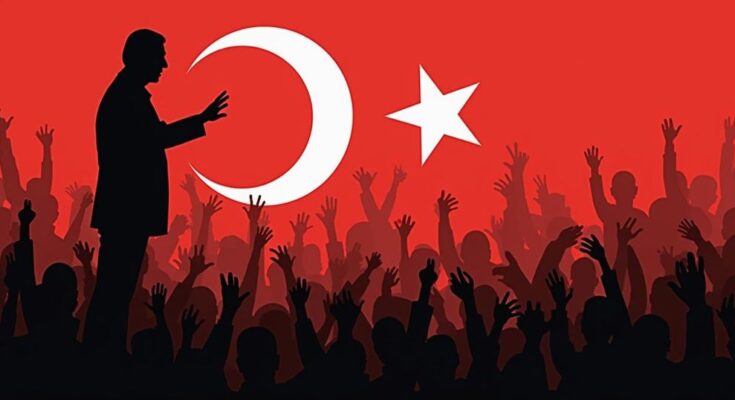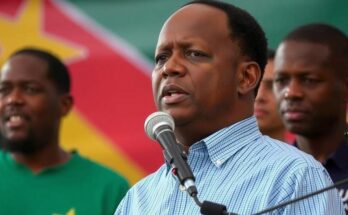In the recent Tunisian presidential election, incumbent President Kais Saied is likely to secure another term amid a landscape marked by repression and limited opposition. The election featured only two challengers, both with contentious backgrounds, while many significant opponents remain imprisoned. Public sentiment reflects resignation and lack of enthusiasm for voting, as economic hardships persist and numerous candidates were barred from the election.
On Sunday, Tunisia held a presidential election where incumbent President Kais Saied is expected to secure another term. This election is marked by the absence of significant opposition, as most of Saied’s notable critics have been imprisoned or barred from running. The electoral race includes only two opposition figures: Zouhair Maghzaoui, who previously supported Saied’s 2021 power grab, and Ayachi Zammel, a businessman currently incarcerated on charges of forgery. The election follows three years of Saied consolidating power, effectively signaling the end of Tunisia’s democratic experiment, which had flourished since the Arab Spring. The electoral atmosphere has been characterized by a lack of public campaigning. With polling opening at 8:00 am (0700 GMT) and closing at 6:00 pm (1700 GMT), preliminary results may be released as soon as Wednesday. Many citizens express disillusionment, with reports suggesting that approximately 9.7 million voters are anticipated to participate, although voter enthusiasm appears minimal due to the oppressive political climate and dire economic conditions. A notable sentiment shared by citizens reflects a belief that voting would be futile, as articulated by a young voter who stated, “We have nothing to do with politics.” Since ascending to power following a decisive electoral victory in 2019, President Saied has implemented constitutional changes and enacted a severe crackdown on dissent, leading to the imprisonment of over 170 individuals for political reasons. These actions have courted criticism from domestic and international observers, given their impact on Tunisia’s previously embraced democratic values. The only two candidates opposing Saied further complicate expectations for meaningful electoral change. In the lead-up to the election, Shifts in public sentiment include dissatisfaction with Saied’s inability to resolve ongoing economic challenges, reflected in critiques from various think tanks. Moreover, protests have occurred in the capital, with demonstrators labeling Saied a “Pharaoh manipulating the law.” During a recent address, Saied urged citizens to exercise their right to vote, framing it as part of a campaign against alleged conspirators undermining the state.
Tunisia is currently in a phase of political unrest and repression following President Kais Saied’s rise to power. After a dramatic power grab in 2021, Saied has faced criticism for undermining the democratic standards established following the Arab Spring, a movement that originated in Tunisia in 2011. The country, previously lauded for its democratic experiment, has seen a significant decline in political freedom, with numerous opposition figures imprisoned, disqualifying many potential candidates from participating in the elections. This election represents a pivotal moment in Tunisia’s political landscape, highlighting the ongoing struggle between authoritarian governance and democratic aspirations.
The presidential election in Tunisia exemplifies a critical juncture, showcasing the consolidation of authoritarian rule under President Kais Saied amidst widespread public disillusionment. With key opposition figures sidelined and a prevailing climate of repression, the electoral outcome appears predetermined, raising concerns regarding the future of democracy in Tunisia. The lack of viable candidates and diminished voter enthusiasm signal a troubling fate for the country’s governance, further complicating the path toward political reform and economic stability.
Original Source: www.france24.com




